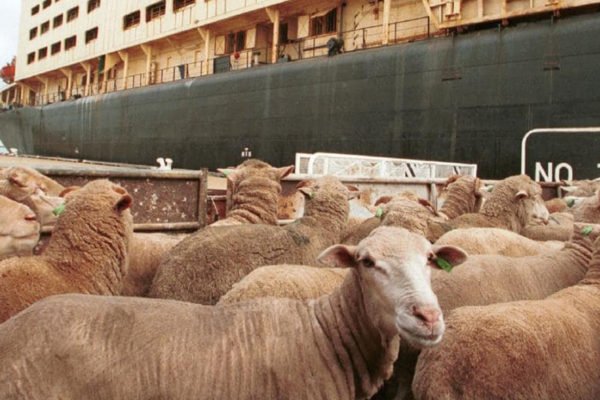

Concerned about endangered animals? Stop eating them
Several rare-breed species of animals are facing extinction after humans have spent the last few centuries eating them and some have proposed a solution: eat more of these animals.
The Rare Breed Survival Trust (RBST) publishes an annual list of endangered British farm animals. This year’s list came partnered with a public suggestion that eating more of the animals on the list would save them from extinction by creating a higher demand. The theory is that if more people purchase endangered animal meat, farmers will supply that demand by breeding more of those animals and thus, “saving” them from extinction. They’re alive and well, if you discount the dinner plates, or pants, or other products they’ll become.
The RBST is a conservation organization that attempts to keep rare-breed farm animals from going extinct through breeding farms. Nothing shows the love and devotion of an animal organization like RBST quite like forcefully having animals procreate to keep unnecessary human interests alive.
To break it down simply and heartbreakingly, several breeds of animals are facing extinction potentially within the next decade. So, why is this really concerning? And what should we be doing if not perpetually breeding and killing more of the same species over and over again?
Species extinction is concerning because it demonstrates the drastic effects of the animal agriculture industry. These animals aren’t going extinct for no reason, they’re going extinct because they’ve been farmed, killed and eaten for centuries. Despite what the RBST might want you to think, animal farming is a leading cause of animal extinction and habitat loss. The RBST clearly thinks this loss of animal diversity is concerning for very a different reason; profit. Do we not want species to die off because that would mean humans wouldn’t be able to capitalize off of them any longer? Or do we not want species to die off because it doesn’t need to happen?
What groups like the RBST hope is that by requesting more meat of a specific endangered species at our local butcher shop, we’ll feel good about ourselves for contributing to “saving the animals”. Just like the myth of “humane” meat, it’s a marketing tactic. In reality, no matter what you’re requesting at a butcher shop, you’re still requesting the body of an animal.
The seemingly obvious solution is to stop killing and eating these animals. Instead, we could remove them from farms and place them into sanctuaries where they could live out the rest of their lives free of exploitation, and could breed if they so choose. The reason this simple solution becomes so muddied is profit. It’s simply not profitable to keep animals on sanctuaries. It is however, ethical. The fact that we’re only willing to “help” animals when there’s human gain is extremely telling about our intentions. Methods of animal conservation that support the exploitation of animals don’t exist for the animals, they exist for human profit.
Protecting these animals means taking them out of situations in which they are going to be killed. It does not mean bringing more of these animals into the world to be exploited throughout the entirely of their lives before being slaughtered. If we remove profit from the picture, and our concern returns to the victims (the animals), then the only solution would be to stop exploiting any breed of animal and to go vegan.



